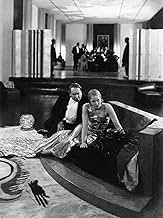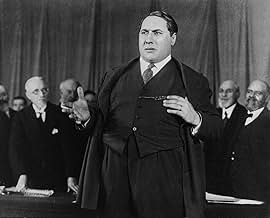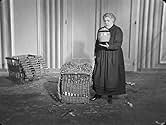Añade un argumento en tu idiomaThe business tycoon Nicolas Saccard is nearly ruined by his rival Gunderman, when he tries to raise capital for his company. To push up the price of his stock, Saccard plans a publicity stun... Leer todoThe business tycoon Nicolas Saccard is nearly ruined by his rival Gunderman, when he tries to raise capital for his company. To push up the price of his stock, Saccard plans a publicity stunt involving the aviator Jacques Hamelin flying across the Atlantic to Guyana and drilling ... Leer todoThe business tycoon Nicolas Saccard is nearly ruined by his rival Gunderman, when he tries to raise capital for his company. To push up the price of his stock, Saccard plans a publicity stunt involving the aviator Jacques Hamelin flying across the Atlantic to Guyana and drilling for oil there, much to the dismay of Hamelin's wife Line. While Hamelin is away, Saccard t... Leer todo
- Dirección
- Guión
- Reparto principal
- Line Hamelin
- (as Mary Glory)
- Massias
- (as Al. Mihalesco)
- Daigremont
- (sin acreditar)
Reseñas destacadas
There is a match-cut from the engine of a plane to a madly spinning camera looking down from a ceiling that is perhaps the most impressive in the entire 30 years of cinema until then. And there is a lot of the camera choreographed to dance, or painting with our gaze incomplete motions across rooms.
Resnais would take all this thirty years later to revitalize French cinema.
Story-wise, it is about two puppet-masters vying for the control of the same world. The film begins on the level of the stage, the stockmarket, this new temple of the modern world devoted to capital, and pulls back to reveal who holds the strings, who re-invents the broadcasted reality.
Like Zen calligraphy, this is not about the painted signs on the scroll and what they mean, but the disciplined soul revealed by the flow of ink. Watch it like you would unfold a scroll, the ink is in the image.
A superb silent classic, exquisitely well made and all too infuriatingly relevant even decades later
All that's to say nothing of the many, many extras on hand, nor those fetching facets like costume design, hair, and makeup that tend to be overlooked. It's just as impressive that the feature manages to do all this with tale set in contemporary France, rather than a period piece or a work of fantasy or sci-fi; it's certainly more infrequent that cinematic storytelling of a more realistic nature is able to conjure such visual wizardry - but here we are. And then there's the plot: a vortex of greed, manipulation, corruption, deceit, and the destruction that follows in the wake of such iniquities, as infuriatingly relevant in 2023 as it was ninety-five years ago, or decades prior when Émile Zola's novel was written, or further back still when it was set. There are no surprises here, for wealth, power, and the pursuit or promise of either only ever bring out the worst in people; there are no singular lightning bolts of brilliance in the screenplay, as all the best creativity the film boasts is found in its craftsmanship. Nonetheless the story is absorbing and compelling, and ably keeps us engaged from start to finish, and as scenes are both written and directed we get no few moments that are especially potent. It helps that the cast is terrific across the board, with Pierre Alcover, Brigitte Helm, and Marie Glory particularly standing out not just for the amount of time they have on-screen, or their prominence in the story as we see it, but definitely too for the strength of their vibrant acting of range and nuance.
I don't think it's unfair to say that the building blocks of the movie kind of outshine the tale it imparts. This isn't to say that the writing is weak, but for as excellent as it may be, the title's construction is altogether extraordinary. Then again, I'm inclined to think that the plot is better about conveying major ideas rather than minute details, and also advances somewhat gradually given the length of over two and one-half hours - with a fair amount of story reserved for just the last twenty minutes. In fairness, should one read up on the history of 'L'argent' even the slightest bit it's clear that the version that now exists is not what L'Herbier originally envisioned, so one can reasonably assume that some elements were lost over time. In any event, however much one wishes to him and haw about This and That, by and large the fact remains that this is a superb, fabulously well made silent classic that continues to hold up all too well. What excitement it may not wholly, immediately foster with its narrative, it more than makes up for with the genius of the work behind the scenes, and the result all around is unquestionably grand. As a matter of personal preference some of its contemporaries may stand taller still, but one way or another 'L'argent' is fantastic, highly deserving of recognition and remembrance, and it earns a solid recommendation for anyone who appreciates older cinema.
The tug of war between director and producer resulted in the latter excising thirty minutes from the film and not until its restoration half a century later were the lost scenes restored. Indeed it was not until the restoration that the film's acclaim finally matched its reputation and it has belatedly been acknowledged as one of the true masterpieces of silent cinema. As a bonus this same restoration has gifted us a highly charged score for piano composed and played by Jean-Francois Zygels.
The technical virtuosity of this film is simply stunning with the sweeping camerawork of Jules Kruger, low and high angle shots and Eisensteinian montage. L'Herbier's love of Art Deco is again evident in the magnificent sets designed by Lazare Meerson and André Barsacq. We are also treated to spectacular scenes in the Bourse, the fictitious World Bank, the Place de l'Opéra and the piéce de resistance, the financier Saccard's evening party.
L'Herbier has made sure that his film's immensity does not diminish the characters. This is surely Pierre Alcover's finest hour as Saccard, a monster of greed and rapacity who is also a pitiful creature. By arrangement with UFA the film also stars Brigitte Helm and Alfred Abel, both fresh from 'Metropolis'. Miss Helm as Baroness Sandorf has never been quite as sinuous and sensuous as she slithers around encased in Jacques Manuel's fabulous costumes. As she writhes on the sofa she epitomises the sheer carnality of wealth. The slight frame of Alfred Abel as Gunderman is in striking contrast to the corpulence of Alcover as his arch rival and his reptilian-like portrayal makes one think what a marvellous Professor Moriarty he would have made. As a contrast to the slinky Baroness we have the full-figured Marie Glory who is at her most appealing here in probably her finest role as Line Hamelin who is intoxicated by the lifestyle offered by Saccard's money but is not prepared to pay the price required. Dramatically effective is a rare appearance on film of Yvette Guilbert, former cabaret artiste immortalised by Toulouse-Lautrec, as a figure of Doom whose presence has always haunted Saccard and is there to witness his downfall.
This monumental piece is L'Herbier's greatest achievement and in his own words, 'the summit of my silent career'. No true cinéfile I am sure would disagree.
¿Sabías que...?
- CuriosidadesThere are 1,952 shots in the film, with an average shot length of just six and a half seconds.
- Versiones alternativasThe film was shown to the French press in December 1928 in a cut lasting about 3 hours and 20 minutes, however by the time the film had its first public screening in January 1929, producer Jean Sapene had ordered the length to be cut by half, unbeknownst to director Marcel L'Herbier and much to his and fellow filmmaker Marcel Carné's dismay. Much later, the film was restored to a running time of 2 hours and 25 minutes.
- ConexionesFeatured in The Twentieth Century: The Movies Learn to Talk (1959)
Selecciones populares
Detalles
- Fecha de lanzamiento
- País de origen
- Idiomas
- Títulos en diferentes países
- Els diners
- Localizaciones del rodaje
- La Bourse, Paris 2, París, Francia(interior: shots from the ceiling covering the crowd movement of buying and selling orders)
- Empresas productoras
- Ver más compañías en los créditos en IMDbPro
Taquilla
- Presupuesto
- 5.000.000 FRF (estimación)
- Duración
- 3h 15min(195 min)
- Color
- Mezcla de sonido
- Relación de aspecto
- 1.33 : 1

































